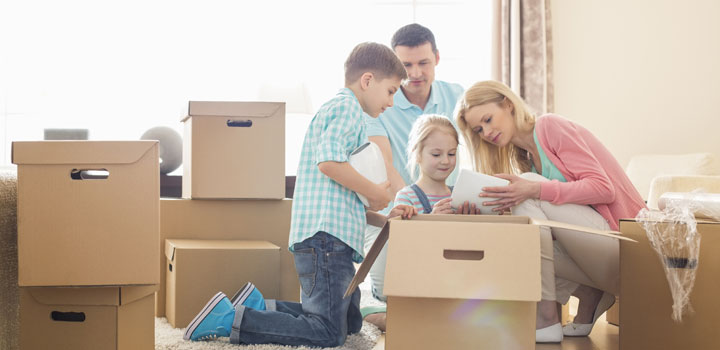Moving With Kids
March 30, 2017
Moving is sometimes inevtibale due to a job, sickness, family etc. And sometimes moving occurs because of investment options or a better home for the family. Whatever the reason for the move, it is important to talk to you children about what is going to happen in an age appropriate manner.
If your children are too young to know what’s happening try to set up the nursery in the new home before they get their. This way, nap times and routines will not be disurpted and you will be able to focus on the new house rather than the new routine.
If your children are old enough to know what’s happening, include them in the new house, new location and hear what they have to say about the move.
Discuss the Move With Kids Before Hand
Have a family meeting. Order a pizza. Talk about the big day!
Let your children know that they can express their feelings and concerns any time.
If this is their first time moving, it could be particularly difficult because they’re leaving their family home. Let your children know you’ll be depending on them to help out during the move, from packing to settling in to the new place.
Try to give them as much information about the move as soon as possible. Answer questions completely and truthfully, and be receptive to both positive and negative reactions. Even if the move means an improvement in family life, kids don’t always understand that and may be focused on the frightening aspects of the change.
If you’re moving across town, try to take your kids to visit the new house (or see it being built) and explore the new neighbourhood.
For far away moves, provide as much information as you can about the new home, city, and state (or country).
Get Kids Feedback On The Move
How do they feel. What do they think is going to happen?
Moving is not only hard on parents but on children as well. Children thrive on routine so taking them to a new home, in a new neighbourhood or a new country can be hard on them.
If your kids are at an age where they understand what is happening – tell them. Ask them about their fears. Prompt them to tell you what they are excited about and support open communication through this stressful time.
Map Out The New Location
To make this move easier on yourself and your children print out a map and draw your old home, your new home and some highlights in the neighbourhood such as the nearest park. Let your children put stickers on the map and count the blocks to the new school or park. If there is something new in the neighbourhood life a craft store or ice cream joint – highlight that for them as well.
Put stickers or draw on everything you will need – gas stations, grocery stores, etc. This make it easy for the children to see nothing will be disrupted and it might provide you with some landmarks (incase you ever get lost in your new neighbourhood).
Make Room Plans
Decorate their new room. Paint it a color they want. Get new bedding and a few new items in the room to make it new and theirs.
Starting over a new house is a great way to start some new routines, new habits and start working on a more creative you. Allowing your children to take ownership of their room could be a great bonding experience for the whole family.
After Moving Day
After the move, try to get your child’s room in order before turning your attention to the rest of the house. Also, try to maintain your regular schedule for meals and bedtime to give kids a sense of familiarity.
When your child does start school, you may want to go along to meet as many teachers as possible or to introduce your child to the principal.
Set realistic expectations about the transition. Generally, teachers expect new kids to feel somewhat comfortable in their classes in about 6 weeks. Some kids need less time; others might need more. Encourage your child or teen to keep up with old friends through phone calls, video chats, parent-approved social media, and other ways to stay connected.
After the move, if you’re still concerned about your child’s transition, a family therapist might provide some helpful guidance.
A move can present many challenges, but good things also come from this kind of change. Your family might grow closer and you may learn more about each other by going through it together.

